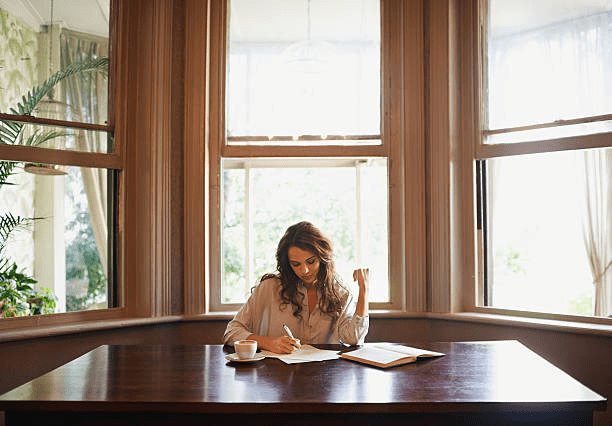Knowing how to do a Will in Australia is essential especially if the testator (the Will-maker) has a big estate and property. However, even people with small or simple estates should make a Will. A Will is a legal document that ensures a deceased’s wishes are fulfilled, regardless of his/her social or financial status in life.
But, what if a person dies without a Will (dying intestate)? This will result in the supreme court deciding how to distribute the assets and estate of the person who dies intestate. Dying intestate is indeed disadvantageous since the testator can’t:
- Decide how to distribute his/her personal assets
- Give specific amounts of money, assets, or property to his/her beneficiaries
- Prevent Will contests or challenges. A person contesting a Will claims that he/she should receive more than what the Will provided. On the other hand, challenging a Will is questioning whether a presumed valid Will.
- Prevent his/her family members and potential beneficiaries from falling into dispute
- Make further provisions for the security of his/her assets and estate
- Make provisions for blended families
- Appoint guardians for his/her children if there are any
- Appoint an executor (The deceased’s partner, a family friend, or a solicitor can act as an executor)
A Will permits a deceased person to name an executor whom they know and trust to allocate their assets and handle financial affairs. For these reasons, it’s important to know how to do a Will in Australia. But, how can people start making their own Will? Indeed, it’s a long and tedious process, but this article will make things easier for people who want to start making a Will of their own.
How To Do a Valid Will in Australia: Estate Planning
An estate plan specifies who is in charge of handling a Will-maker’s affairs. This also includes how and when to divide assets and estate. Family lawyers and Wills and estates lawyers are experienced in aiding Will-makers to draft their very own estate plans. There are many factors to take into account when planning one’s estate. Here are five basic elements of an estate plan:
1. Wills and Trusts
As mentioned above, a Will is a legal document that sets out a person’s last wishes and estate and asset distribution. Will-makers should ensure that they seek legal advice from a family lawyer and Wills and Estate Planning solicitor if they want to know how to do a Will in Australia. Trusts are formal agreements that safeguard property while directing its use and disposal in line with the interests of its owners.
2. Life Insurance Policy
An estate plan can take care of items like assets from a deceased person’s life insurance policy. Will-makers are normally not expected to include this policy in their estate. This is due to the fact that Will-makers typically designate the beneficiary of any payout when they purchase life insurance policies.
2. Durable Power of Attorney
Every person has the responsibility of regularly paying bills, managing bank accounts, signing documents, and any other ordinary yet personal circumstances. However, some Will-makers may experience unfortunate events like accidents that may lead to mental or physical disabilities or even unexpected deaths.
A durable power of attorney enables Will-makers to designate a dependable person to take over the Will-maker’s responsibilities. Similar to a durable power of attorney, a healthcare power of attorney may also make medical decisions for the testator. This is if testator’s are unable to make medical decisions for themselves.
3. Beneficiary Designations and Bequests
Beneficiaries are the people who receive an inheritance from a Will. Additionally, making a bequest refers to leaving a legacy/gift to important causes or organisations. It’s important that Will-makers make careful considerations in naming beneficiaries and making bequests when knowing how to do a Will in Australia.
Will-makers may also designate a beneficiary who will receive his/her superannuation fund. Superannuation funds are accumulated money from a person’s employment. A binding death benefit nomination is needed when nominating a beneficiary for a super fund.

Is A DIY Will Kit a Legal Document?
DIY Will kits are online downloadable Will templates that are sold at a cheap price. However, this price also comes with unique disadvantages since DIY Will kits are not legally binding. Moreover, most DIY Will kits are not updated in accordance with state laws and regulations like the Succession Act 2006 (NSW). Here are other disadvantages of using DIY Will kits:
- Taxation issues (capital gains tax, stamp duty, superannuation death benefit tax)
- Missing clauses
- Incorrect description of assets
- Incorrectly completed forms
- Not having the Will witnessed correctly
- Unclear instructions for estate or asset distribution
Important Steps To Making A Legally Binding Will
1. Significant Changes
After preparing an estate plan with a lawyer, Will-makers may now proceed with drafting a legally binding Will. Knowing how to do a Will in Australia will require a lot of preparation and consideration since their life circumstances might change. These changes will affect how Will-makers will set out their wishes and conditions. Some of these common changes include:
- Divorce and remarriage
- Deciding in removing and adding beneficiaries
- Acquisition of a new property
- The testator having new children or grandchildren
- Death of a beneficiary or a spouse
2. Appointing Legal Guardians
Will-makers should appoint legal guardians for their children who are under 18. This helps the Will-maker’s children still gain parental support and guidance in case the testator passes away before they turn 18. When choosing to appoint a legal guardian in a Will, Will-makers should:
- Check and see if the legal guardian share similarities in their lifestyle, beliefs, and values
- Ensure that the legal guardian is trustworthy, emotionally ready, and physically fit for the task
- Ask the legal guardian if they also plan to have children and if it will hinder them from taking care of the Will-maker’s children.
- See if the legal guardian already has a good relationship with the Will-maker’s children.
3. Assets
This is one of the most important steps in knowing how to do a Will in Australia. Will-makers should perhaps list their assets in categories to avoid confusion. It’s also wise for Will-makers to list the approximate value of each asset and consult with a family lawyer for the value of each asset later on. Here are some examples of assets:
- Cars
- Furniture
- Gadgets
- Bank accounts
- Trust funds
- Buildings and houses
- Lands
- Patents and Trademarks
- Businesses
- Pets
4. Beneficiaries and Charities/Organisations
After listing down assets, Will-makers may now proceed to nominate beneficiaries who will receive these assets and properties. It’s highly essential that Will-makers designate the exact amount and division for beneficiaries to prevent disputes and confusion between beneficiaries and family members.
Will-makers may list down clauses that prevent Will contests or challenges so their wishes are final and legally binding. After writing these important points in a Will, Will-makers must sign the Will in front of two qualified witnesses to ensure that the Will is legally binding. People can act as qualified witnesses if they are:
- A legal adult with a testamentary capacity
- Not a beneficiary of the Will
- Not the spouse/de facto partner of the beneficiary of the Will
- Not blind

How To do Your Own Will in Australia With JB Solicitors
People value their well-earned assets and estate, especially if there are a lot of them in their possession. Moreover, people will want to distribute these possessions to rightful beneficiaries, heirs, or organisations that had a significant impact on their life.
With JB Solicitors‘ expert legal advice, we can help people write their own legally binding Will that adheres to state laws and regulations. Our family lawyers are experienced in Wills and estate planning to help Will-makers plan their estates for their families. Do you want professional advice in knowing how to do a Will in Australia with us?
Consult and contact our team of family-friendly lawyers today for the best approach in making a last will and testament.
